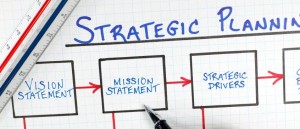Procurement Must Be Strategic or Die
Procurement Must Be Strategic or Die – In a post, over on SM Steve Bagshaw asks us to contemplate what we call ourselves – a question which refuses to die. On the Purchasing Practice Linkedin group this same question is still receiving comments more than 12 months after posting.
The answer really depends upon where the procurement profession wants to be.
The question’s continued appearance points to a lack of cohesive strategy and direction setting.
If we all want to fulfil the real strategic potential, we should be asking:
‘What is strategic procurement? And are we ready to be strategic?’
I recently asked on LinkedIn:
‘How do you know if procurement is really strategic in your organisation? Are there key indicators that must be positive?’
With no answers forthcoming, I am left wondering if there is a lack of appetite for the challenge.
Procurement professionals must lose the support mentality
During business planning procurement too often settles for ‘facilitating and supporting the strategy’, ‘developing a sourcing sub-strategy’ or some other secondary outcome, while functional heads from other areas of the business take responsibility for the outcomes. This mind set needs to change if the profession is to play a strategic role in the business.
Before procurement can claim its position in the corporate planning process, buyers must develop a strategic mind-set. Their approach to purchasing must reflect a crystal clear understanding of the firm’s competitive environment. It is also important for them to recognise the planning process is two-way and procurement has a reciprocal relationship to influence and shape the business strategy.
To achieve this procurement must prepare itself.
Ask yourself the following questions to help determine if the foundations are in place to successfully address strategy:
- Is the procurement function in your organisation thought of as a strategic group, to gain acceptance and compliance from other business units?
- Are buyers in your organisation properly trained in your firm’s strategy and commodity and sourcing markets, so they can make educated decisions about the procurement strategy as it relates to the firm’s competitive environment?
- Does senior management actively support implementing a new procurement strategy? This will be essential in introducing new processes to other internal business units.
- Because the strategy stretches across functions, does the organisation possess common goals and measures which the strategy will clearly support?
- Are tactical purchasing activities automated or handled by other internal users, so procurement professionals can devote the necessary time to strategic initiatives?
When a gap exists between procurement and corporate planning, purchasing sits exposed.
Instead of Contributing to the CEO’s Agenda, in most organisations it is still viewed as a cost-saving function and has not made a direct connection to business strategy. Without this connection procurement is vulnerable to a change in CEO, a shift in strategy where cost is not the primary focus or a takeover where it is not seen as a strategic player.
Be strategic or die.
Nuff said …



